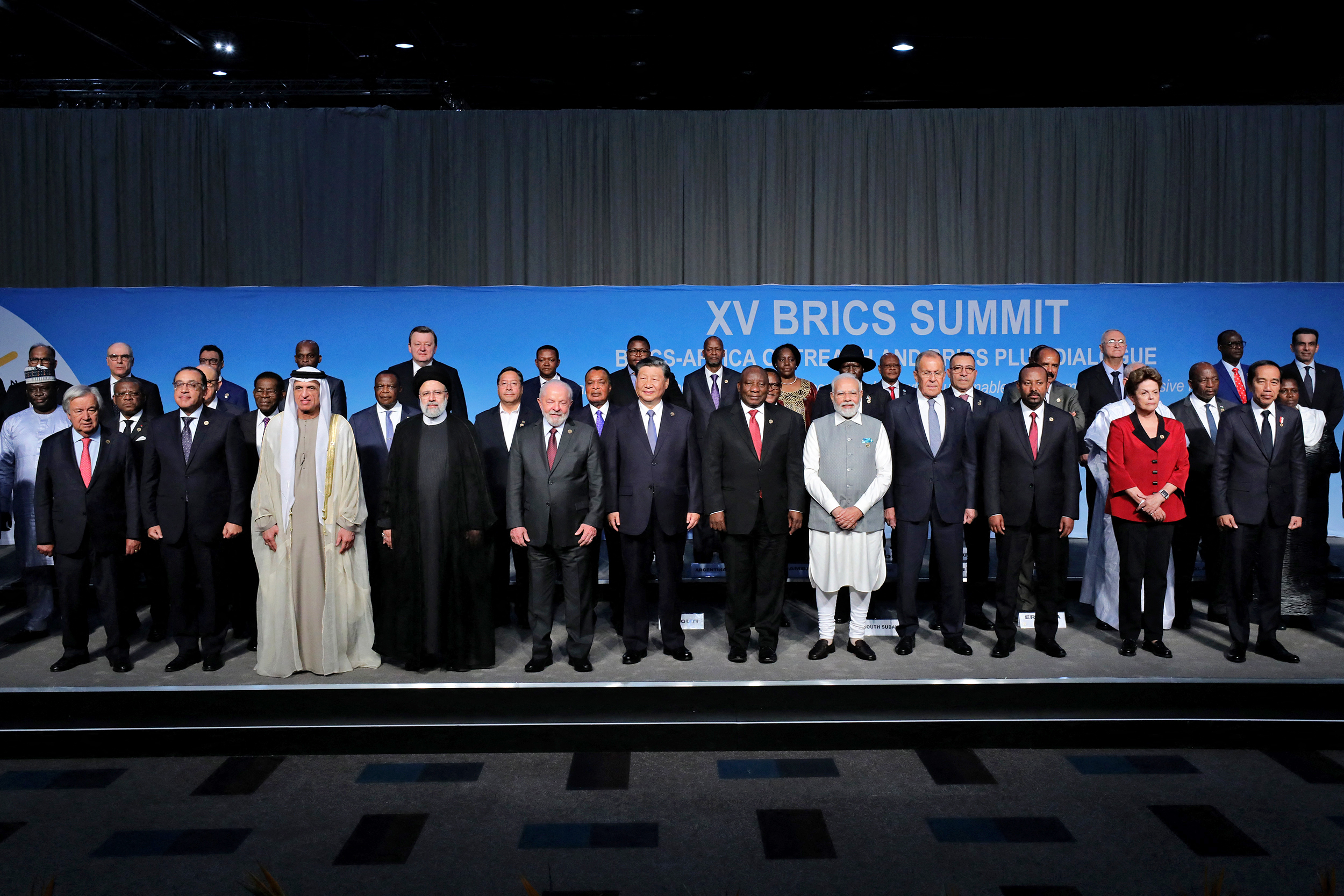
“This membership expansion is historic,” said Chinese President Xi Jinping.
“The expansion is also a new starting point for BRICS cooperation. It will bring new vigour to the BRICS cooperation mechanism and further strengthen the force for world peace and development.”

A senior adviser to Iran’s president on Thursday welcomed the country’s admission to the grouping.
“Permanent membership in the group of global emerging economies is considered a historic development and a strategic success for the foreign policy of the Islamic republic,” Mohammad Jamshidi wrote on X, which was previously known as Twitter.
Ethiopian Prime Minister Abiy Ahmed hailed what he called “a great moment” for his country, Al Jazeera reported.
“Ethiopia stands ready to cooperate with all for an inclusive and prosperous global order,” Abiy said on Twitter.
“We look forward to develop this cooperation to create new developmental and economic opportunities and elevate our relationship to the aspired level,” Prince Faisal bin Farhan, Saudi Arabia’s foreign minister said at the summit on Thursday.
Later, he told Saudi channel Al Arabiya that the kingdom welcomed the invitation and would review the details in order to make an “appropriate decision” ahead of the proposed joining date.
The core group of five BRICS countries has been discussing the issue of expansion for more than a year, Ramaphosa said, and the new members were invited this week after an agreement was reached at the summit, the news site noted.
The expansion of the group is part of its plan to build dominance and reshape global governance into a “multipolar” world order that puts voices of the Global South at the centre of the world agenda.
The inclusion of Saudi Arabia, the UAE, Iran and Egypt marks the first MENA representation in the group, and the inclusion of Argentina was championed by member Brazil.
Expansion was pushed heavily by Russia and China, analysts said, as they are facing pushback from Western nations in the form of sanctions.